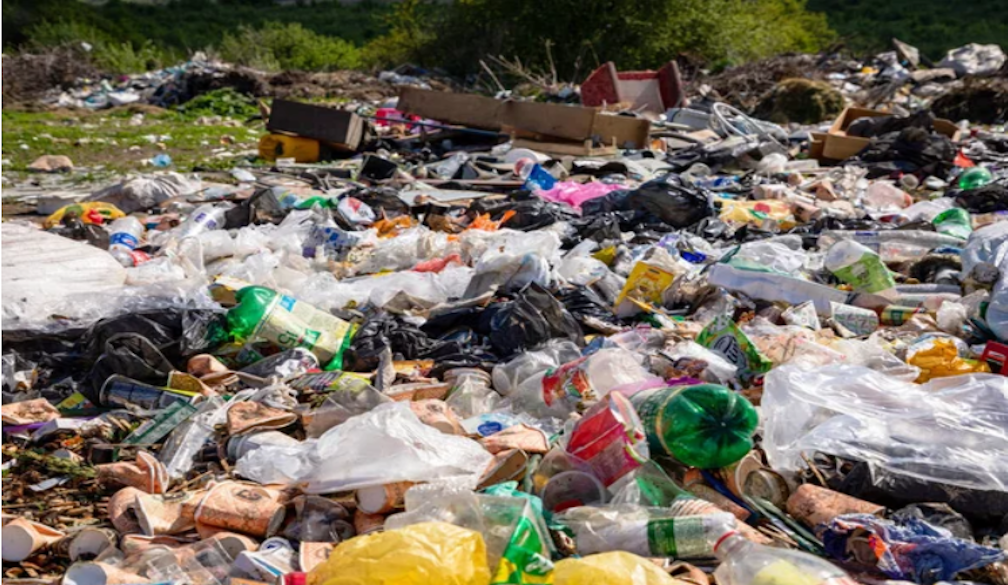Understanding the Environmental and Health Impacts of Waste Disposal: Essential Insights

🌎♻️Explore the health & environmental impacts of waste disposal. Dive into essential insights💡for a sustainable future! #WasteManagement #Health🌿🌍
Waste disposal is an inevitable aspect of modern life, encompassing household, industrial, and commercial waste. As the global population continues to grow, so does waste production. One of the critical concerns is the effects of waste disposal, which can lead to pollution, habitat destruction, and the depletion of natural resources. Improper waste disposal has significant environmental and health repercussions that are often overlooked. Understanding these impacts is crucial to adopting more sustainable waste management practices that benefit the planet and human health.
Environmental Impact of Improper Waste Disposal
One of the most critical consequences of poor waste disposal is its environmental impact. Landfills, incineration, and littering can pollute soil, air, and water. Landfills, for example, are designed to contain waste, but toxic substances from decomposing materials often leach into the surrounding soil, contaminating groundwater sources. This can harm local ecosystems, affect wildlife, and compromise the quality of water used for agriculture and human consumption.
While reducing the volume of waste, incineration releases harmful gases such as carbon dioxide, sulphur dioxide, and nitrogen oxides into the atmosphere. These contribute to air pollution, acid rain, and the exacerbation of climate change. Additionally, burning waste produces dioxins and furans, highly toxic compounds that can settle in the soil and waterways, further degrading environmental quality.
Plastic waste, a large portion of the waste stream, severely affects ecosystems. It can take hundreds of years to break down and often ends up in oceans, causing marine pollution. Wildlife, including birds, fish, and marine mammals, can ingest or become entangled in plastic waste, leading to injury or death. Microplastics, the breakdown products of larger plastic items, enter the food chain and pose risks to animals and humans.
Human Health Risks Associated with Waste Disposal
Improper waste disposal damages the environment and poses significant health risks to humans. Exposure to hazardous waste, whether through air, water, or direct contact, can lead to a variety of health problems.
Toxic substances like heavy metals, chemicals, and biological contaminants can leach from waste sites and enter drinking water supplies. Prolonged exposure to contaminated water can result in diseases such as cancer, neurological disorders, and reproductive issues. Poorly managed waste can also attract pests, such as rats and insects, which spread infectious diseases like leptospirosis, dengue fever, and cholera.
Air pollution from incineration and other waste disposal methods can exacerbate respiratory conditions like asthma, bronchitis, and lung cancer. Particulate matter and volatile organic compounds (VOCs) released into the atmosphere can affect air quality and contribute to a range of respiratory and cardiovascular diseases. Vulnerable populations, such as children, the elderly, and those with pre-existing health conditions, are particularly at risk.
Workers in the waste management industry are often exposed to hazardous materials, leading to occupational health risks. They may experience chronic illnesses due to constant exposure to toxic chemicals, pathogens, and airborne pollutants without proper protective measures. The health effects of poor waste disposal extend beyond those who work directly in the industry, affecting communities near landfills, incineration plants, and waste dumping sites.
The Global Waste Crisis
The world is grappling with a waste crisis exacerbated by rapid urbanisation, industrialisation, and consumerism. According to the World Bank, global waste generation is expected to increase by 70% by 2050 if current trends continue. This growing waste burden will further strain waste management systems, particularly in developing countries with insufficient infrastructure and the need to improve low-income countries; open dumping and unregulated waste burning are standard practices. These contribute to severe air and water pollution, disproportionately affecting the health of vulnerable communities. Additionally, electronic waste, or e-waste, which includes discarded electronics like computers and phones, is growing at an alarming rate. E-waste contains hazardous materials like lead, mercury, and cadmium, which pose significant environmental and health risks when improperly disposed of.
Solutions for Sustainable Waste Management
Tackling the waste crisis requires a multifaceted approach prioritising sustainable waste management practices. One key strategy is reducing waste at the source through policies that encourage recycling, composting, and the use of environmentally friendly materials. Governments can implement extended producer responsibility (EPR) programs, requiring manufacturers to take responsibility for the disposal of their products, particularly hazardous materials and plastics.
To divert more waste from landfills and incinerators, recycling programs must be expanded and made more efficient. Composting organic waste can significantly reduce the volume of waste sent to landfills and provide a valuable resource for agriculture. Waste-to-energy technologies can convert waste into energy, reducing the reliance on fossil fuels while managing waste more effectively.
Education and awareness campaigns are essential to encourage individuals and businesses to adopt better waste disposal practices. Reducing single-use plastics, properly sorting recyclables, and participating in local waste reduction initiatives can make a significant difference. Consumers can also make conscious purchasing decisions that minimise waste generation and support sustainable products.
Conclusion
Waste disposal is a global challenge with far-reaching environmental and health impacts. From polluting the earth and water systems to contributing to climate change and human health problems, improper waste management poses serious risks. By understanding these consequences and adopting more sustainable waste management practices, individuals and governments can contribute to a healthier planet. Reducing waste, promoting recycling, and improving disposal methods are critical steps toward mitigating the harmful effects of waste and building a more sustainable future.










